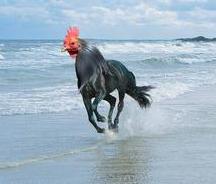Look to the Past for Lessons.
What I like about his contribution is that he pushes the importance of reading and knowing where you came from down the chain of command. Knowledge of the past isn't just for those leading armies, writing strategy, putting plans together, or wearing stars - no - it is for all leaders.
The tools may change, but the essence of the profession of arms has not changed in thousands of years. Joe gets it - and he wants other to get it too.
Just a sample;
...how can we improve our leadership abilities? By looking to the past. History is a landscape full of commanders who led soldiers through extreme conditions and faced great fear and uncertainty yet accomplished amazing feats. Their leadership made the difference, and we can improve ourselves by studying their successes as well as their failures.Read it all.
...
think about the type of leader we want to be ahead of time. Nothing helps drive introspection better than studying past leaders.
Additionally, we can come loaded with vicarious experiences that will greatly improve our decisionmaking abilities. British Field Marshal Sir William Slim can help us think through the value of calm and cool-headed leadership when we are up against insurmountable problems. Gen. George S. Patton Jr. can teach how aggression on the battlefield affects enemy decisionmaking. Finally, Lt. Gen. Ulysses S. Grant can prepare us to effectively exercise Mission Command when one of our subordinates is a Maj. Gen. William T. Sherman and the other is a Maj. Gen. Gouverneur K. Warren.
...
I’ve also learned much from the horrible bosses of history as well as rising stars who fell from grace. Maj. Gen. Charles Lee, who was permanently dismissed from the Continental Army, is a great example of what happens when we fail to follow others and let our personal flaws go unchecked as we are given more responsibility. The careers of Gens. George McClellan and Douglas MacArthur should help us reflect on ego so we may keep ours from clouding professional judgment. British Gen. Sir Redvers Buller, from the Boer War, exemplifies what happens when we fail to develop our intuition through self-study.
...
When we study the leaders who came before us, we begin to reflect on the leadership traits we want to develop in ourselves. We become better prepared to respond when the need arises, and we more clearly understand what is required of us to win in battle.
The choice is ours. We can either be shaped and influenced by our narrow experiences, or we can allow leaders from over 5,000 years of combat to mold us into the great leaders our subordinates deserve.
Hat tip BJ.





























